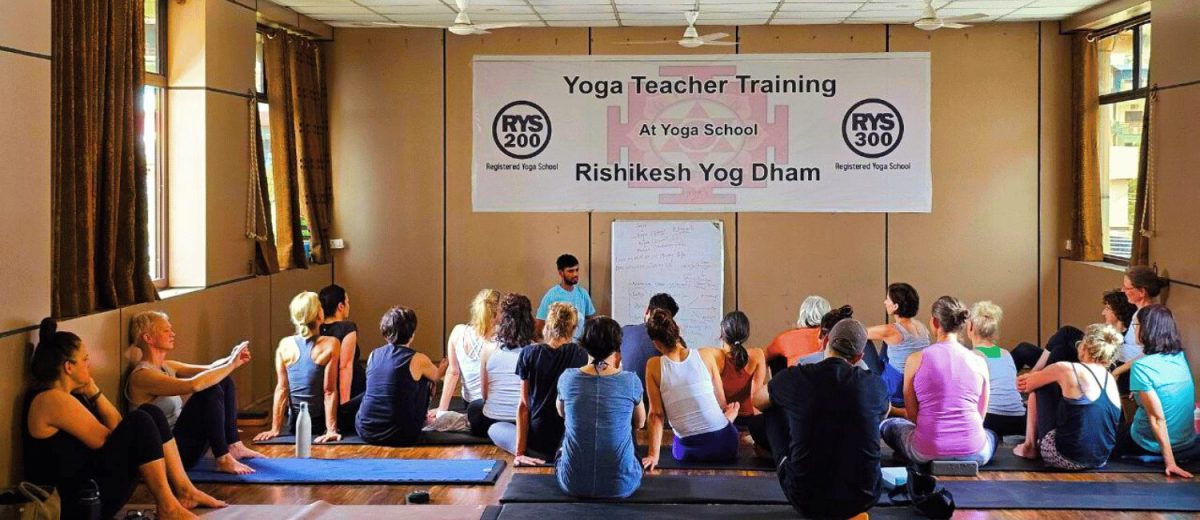How to Select the Right Yoga Teacher Training Program in Rishikesh

Rishikesh, nestled in the foothills of the Himalayas and bordering the sacred Ganges River, is known as the “Yoga Capital of the World.” It attracts thousands of yoga enthusiasts and aspiring teachers each year who seek to deepen their practice through programs Yoga Teacher Training In Rishikesh. However, with the plethora of options available, choosing the right yoga teacher training program can be overwhelming. In this comprehensive guide, we’ll explore essential factors to consider when selecting a YTT program in Rishikesh, ensuring that your training aligns with your personal and professional goals.
Determine Your Goals for Training
Before diving into the selection process, it’s crucial to clarify your objectives for undertaking a yoga teacher training program. Understanding your goals will help narrow down your options and ensure you choose a course that resonates with your aspirations. Here are some questions to consider:
- What is your current level of experience? Are you a beginner, intermediate, or advanced practitioner?
- What are your primary interests? Are you more inclined toward physical practice (asanas), meditation, philosophy, or a holistic approach that combines all aspects?
- Do you intend to teach yoga professionally, or is this training for personal growth? Knowing your end goal can significantly influence your choice of program.
By answering these questions, you can set a clear direction for your search and focus on programs that meet your specific needs.
Research Accredited Yoga Schools
Rishikesh is home to numerous yoga schools, each offering a variety of YTT programs. When selecting a school, it’s essential to ensure that it is accredited by a recognized organization, such as the Yoga Alliance. Accreditation guarantees that the school meets international standards for yoga teacher training, covering essential topics like anatomy, philosophy, and teaching methodology.
Here are some points to consider during your research:
- Check the school’s website: Look for details about their accreditation and affiliations. An accredited school will typically display its credentials prominently.
- Read reviews and testimonials: Explore online reviews from past students to gauge their experiences and satisfaction with the program. Look for feedback on the quality of teaching, course structure, and overall environment.
Evaluate Course Content and Curriculum
Each yoga teacher training program has a unique curriculum, and it’s essential to review the course content carefully. A well-rounded program should cover various aspects of yoga, including:
- Asanas (Postures): Study of fundamental and advanced postures, alignment, and modifications.
- Pranayama (Breathing Techniques): Instruction in breathing exercises that enhance energy flow and relaxation.
- Meditation Practices: Techniques to cultivate mindfulness and inner peace.
- Yoga Philosophy: Exploration of classical texts such as the Yoga Sutras, Bhagavad Gita, and Hatha Yoga Pradipika.
- Anatomy and Physiology: Understanding the human body and its response to yoga practice.
- Teaching Methodology: Guidance on how to effectively teach and assist students in their practice.
Ensure that the program aligns with your interests and learning goals. Some schools may offer specialized training in styles like Hatha, Vinyasa, or Ashtanga, while others may provide a more generalized curriculum.
Consider the Duration and Intensity of the Program
Yoga teacher training programs in Rishikesh vary in duration, typically ranging from 100 to 500 hours. The most common program is the 200-hour YTT, which is usually conducted over four weeks. However, there are shorter programs, such as the 100-hour YTT for beginners, and longer programs for advanced practitioners seeking deeper knowledge.
When choosing the duration, consider the following:
- Your time commitment: Can you dedicate several weeks to an intensive training program?
- Your learning pace: Some students may prefer a slower, more gradual learning process, while others thrive in an intensive environment.
It’s essential to choose a program that fits your lifestyle and learning preferences to ensure a fulfilling experience.
Assess the Teaching Faculty
The quality of instruction is one of the most critical factors in your YTT experience. Research the teachers at the school to ensure they are experienced, knowledgeable, and aligned with your learning objectives. Here’s what to look for:
- Experience and Credentials: Investigate the instructors’ backgrounds, qualifications, and teaching styles. Look for teachers with extensive experience in yoga practice and teaching, as well as advanced certifications.
- Teaching Style: Each instructor has a unique teaching style. If possible, attend introductory classes or workshops with the faculty to get a sense of their approach and whether it resonates with you.
- Student-Teacher Interaction: A supportive and approachable teacher fosters a positive learning environment. Ensure that instructors encourage questions and offer constructive feedback during practice sessions.
Location and Facilities
The setting of your yoga teacher training can significantly impact your experience. Rishikesh offers a variety of locations, from serene ashrams along the river to bustling streets near the town center. Consider the following when evaluating potential schools:
- Scenic Environment: Choose a location that inspires you. A peaceful, natural setting can enhance your focus and promote a deeper connection to your practice.
- Facilities and Amenities: Check the school’s facilities, including classrooms, practice areas, accommodation, and dining options. Ensure they meet your comfort and hygiene standards.
- Accessibility: Consider the school’s proximity to essential services, such as grocery stores, markets, and medical facilities, in case you need anything during your stay.
Explore Accommodation Options
Many yoga schools in Rishikesh offer on-campus accommodations as part of their YTT packages. When evaluating accommodation options, consider the following:
- Living Conditions: Ensure that the accommodations are clean, comfortable, and conducive to your study and practice. Most schools provide shared dormitory-style rooms or private rooms.
- Amenities: Look for essential amenities like Wi-Fi, hot water, and laundry facilities. Some schools may also offer additional features like yoga mats, props, and study materials.
- Community Atmosphere: Staying on campus often fosters a sense of community among students. Consider whether you prefer a communal living experience or more privacy.
Understand the Costs Involved
Yoga teacher training programs in Rishikesh vary widely in cost. While many programs are affordable compared to Western counterparts, it’s essential to understand what’s included in the tuition fees. Here are some factors to consider:
- Tuition Fees: Compare the costs of different programs, taking note of what is included in the fees (e.g., accommodation, meals, course materials).
- Additional Expenses: Factor in extra costs such as travel, visa fees, excursions, and personal expenses during your stay. It’s helpful to have a budget in place to avoid surprises.
- Payment Plans and Discounts: Some schools may offer early-bird discounts or payment plans to make training more accessible. Inquire about available options when contacting schools.
Look for Specializations and Unique Offerings
Some yoga schools in Rishikesh offer specialized courses or unique experiences that can enhance your training. Consider programs that align with your interests or provide additional learning opportunities, such as:
- Specialized Workshops: Look for schools that offer workshops in areas such as prenatal yoga, yoga therapy, or advanced asana practice.
- Holistic Practices: Many schools incorporate holistic practices such as Ayurveda, mindfulness meditation, or sound healing into their curriculum.
- Retreat Experiences: Some programs include retreats that allow students to immerse themselves in a yogic lifestyle, often featuring nature excursions, spiritual ceremonies, or community service.
Engage with Past Students
Connecting with alumni can provide valuable insights into a school’s programs and culture. Reach out to past students through social media platforms or online forums, and ask questions such as:
- What was their overall experience like?
- How did the training impact their practice or teaching journey?
- Would they recommend the program?
First-hand testimonials can help you gauge whether a particular program aligns with your expectations and aspirations.
Trust Your Intuition
Lastly, while research and evaluations are crucial, it’s essential to trust your intuition when selecting a yoga teacher training program. Your gut feeling can often guide you toward the right choice. If a particular school resonates with you or you feel drawn to a specific instructor, consider those feelings seriously.
Conclusion
Choosing the right Yoga Teacher Training In Rishikesh is a significant decision that can shape your yoga journey. By carefully considering your goals, researching accredited schools, evaluating course content, and assessing teaching faculty and facilities, you can find a program that aligns with your personal and professional aspirations.
Remember that your experience in Rishikesh will not only provide you with the skills to teach yoga but also immerse you in the rich culture and spiritual heritage of this sacred town. With the right training, you’ll not only deepen your practice but also gain the confidence and knowledge to inspire others on their yoga journey. Embrace this opportunity to transform your life and share the gift of yoga with the world.




